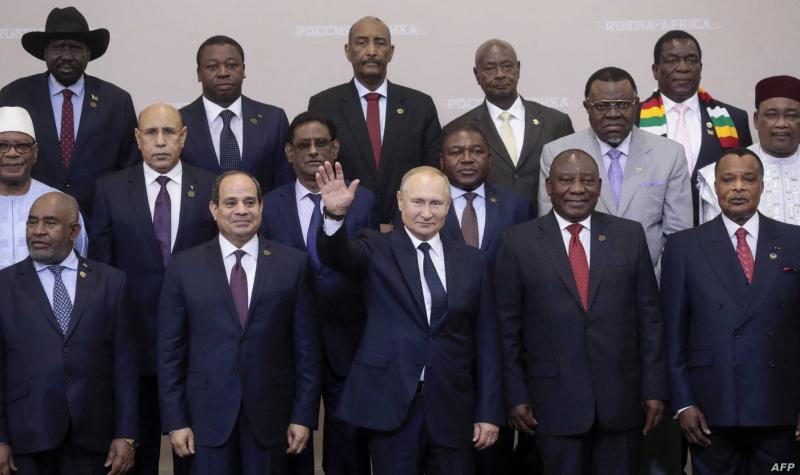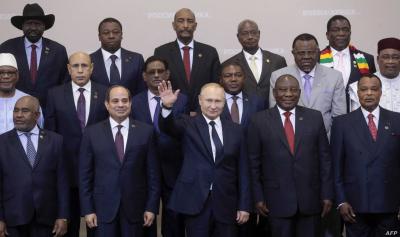Last week, Reuters reported that Mali, currently governed by a military council after two coups in the past 13 months, is in talks with a mercenary group to employ at least 1,000 fighters to train the country's army and provide security for high-ranking officials. On Saturday, Russian Foreign Minister Sergey Lavrov confirmed that Mali requested Russian private companies to enhance security in the conflict-ridden state, asserting that Moscow is not involved, according to AFP. Lavrov stated at a press conference at the United Nations headquarters in New York, "These are activities carried out on a legitimate basis." He added, "We have no relation to this."
However, Western experts and officials fear that the entry of Wagner mercenaries into Mali may make the new military ruler of the country indebted to Moscow, increasing instability, which has already led to millions being displaced from their homes, according to Foreign Policy magazine. The American magazine emphasized that having a thousand mercenaries in a country the size of Mali is merely a drop in the ocean, but the reports have raised concerns in Western capitals, especially in Paris, which is seeking to reduce its presence in the West African Sahel region after 8 years of counter-terrorism efforts. Over the past weekend, French Defense Minister Florence Parly traveled to Mali to reconsider this move. On Monday, she warned that hiring Wagner fighters would isolate Mali internationally.
On Friday, French Foreign Minister Jean-Yves Le Drian warned his Russian counterpart Sergey Lavrov against any involvement of Wagner Group fighters in the conflict in Mali. The French Foreign Ministry stated, "Regarding Mali, the minister warned his Russian counterpart of the serious consequences of Wagner Group's involvement in the country."
### Involvement in Human Rights Violations
The potential deployment of Wagner fighters in Mali aligns with Moscow's new strategy of sending Russian mercenaries to support beleaguered African leaders, thereby granting the Kremlin significant influence in the continent. According to Foreign Policy, it is widely believed that the nebulous network of companies and contractors forming the so-called Wagner Group is closely tied to Russian security services. Joseph Siegel, Director of Research at the Africa Center for Strategic Studies at the National Defense University, noted, "We have a very clear map of how this happens." He pointed out that over 2,000 Wagner fighters were sent to the Central African Republic since 2017. He added, "On the surface, they are unarmed military trainers, which enabled their deployment to circumvent the UN arms embargo imposed on the country in 2013. But the Russians quickly took on prominent roles, working as guards for Central African President Faustin-Archange Touadéra, and Valery Zakharov, a former Russian military intelligence official, serves as a national security advisor to Touadéra."
Siegel continued: "They have gained unprecedented influence in the Central African Republic. The Wagner Group has also been involved in human rights violations, extrajudicial killings, rape, and torture." The Wagner Group aims to advance the Kremlin's geopolitical goals in exchange for lucrative extraction of natural resources in the countries where they operate, according to Foreign Policy. This pattern has been implemented in Syria, Libya, Sudan, and the Central African Republic, where group-affiliated companies were granted mining concessions for gold and diamonds in 2018. Siegel stated, "I bet they will access some gold, uranium, and bauxite mines in Mali."
Russia is steadily increasing its presence across Africa through more traditional economic and diplomatic activities, as well as more illicit means via the Wagner Group, seeking to enhance access to the continent's rich natural resource reserves.
### Increasing Russian Influence in Africa
The magazine confirmed that Russian relations with African countries are growing yet remain below the levels of China, the United States, and European countries with the continent. Moscow has targeted fragile states in the region during times of turmoil. In December 2020, the Russian government announced it had struck a deal with the Sudanese government to establish a naval base in Port Sudan on the Red Sea, expanding its military presence in the Middle East and North Africa, but Khartoum announced a review of the agreement. In Libya, Wagner forces acted as a spearhead, fighting alongside Khalifa Haftar's forces, according to U.S. Africa Command. In Madagascar, they participated in training local armed forces, and Wagner operatives were sent to Mozambique.
Since 2015, Russia has signed bilateral military cooperation agreements with over 20 African countries. This summer, it finalized deals with Africa's two most populous countries: Ethiopia and Nigeria. The first Russia-Africa summit, co-hosted by Russian President Vladimir Putin and Egyptian President Abdel Fattah el-Sisi, took place in 2019, with another scheduled for next year.
The role of Russia in the military coup that ousted then-Malian President Ibrahim Boubacar Keita in August 2020 remains unclear. However, the Daily Beast reported that two of the coup's planners were in Russia for military training and traveled from Moscow to the Malian capital, Bamako, just days before the coup. Cameron Hudson, former director for African affairs at the National Security Council, stated that if the Malian military-led transitional government contracts with Wagner fighters, it would mark a "potentially pivotal moment." He added, "This is an authority choosing between Russian-led mercenaries or cooperation with some of the most respected militaries in the world."
The American magazine emphasized that Russian incursions in Africa have raised Western concerns regarding Moscow's long-term intentions.




